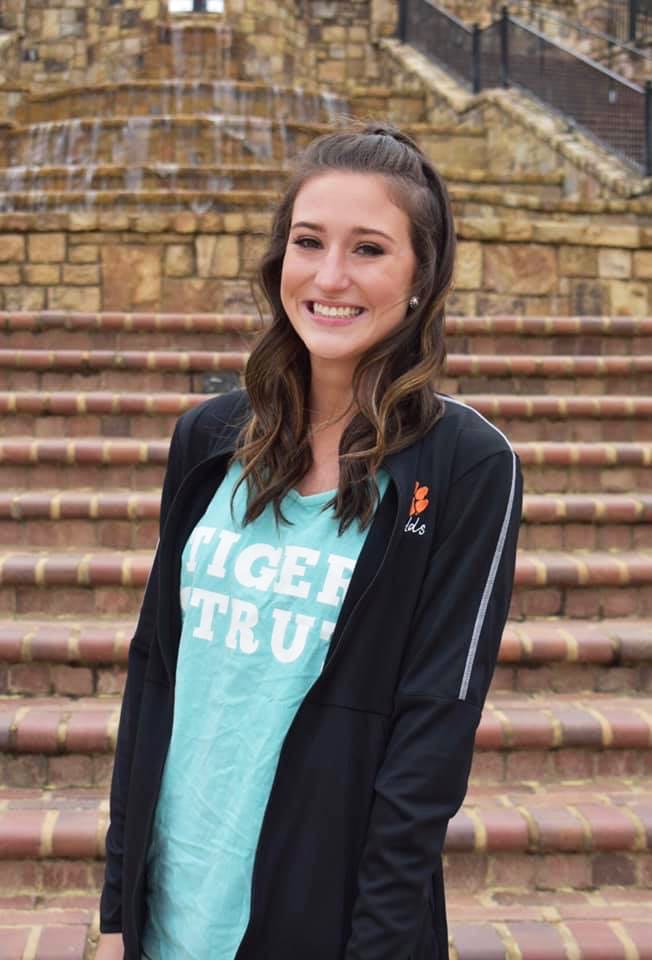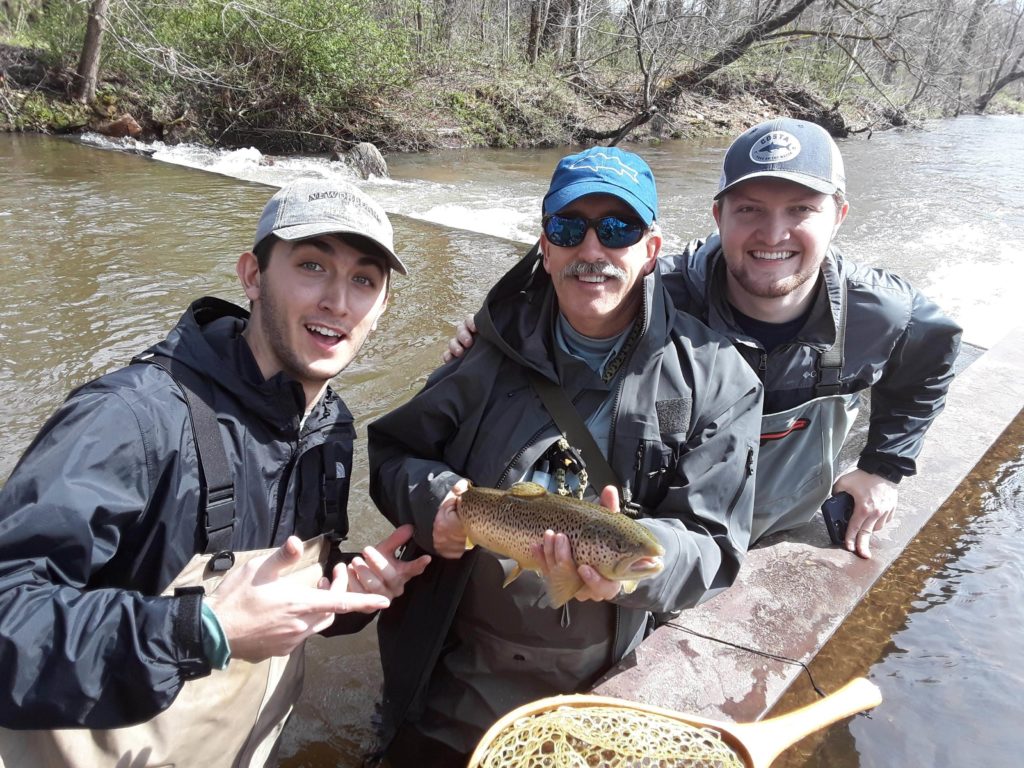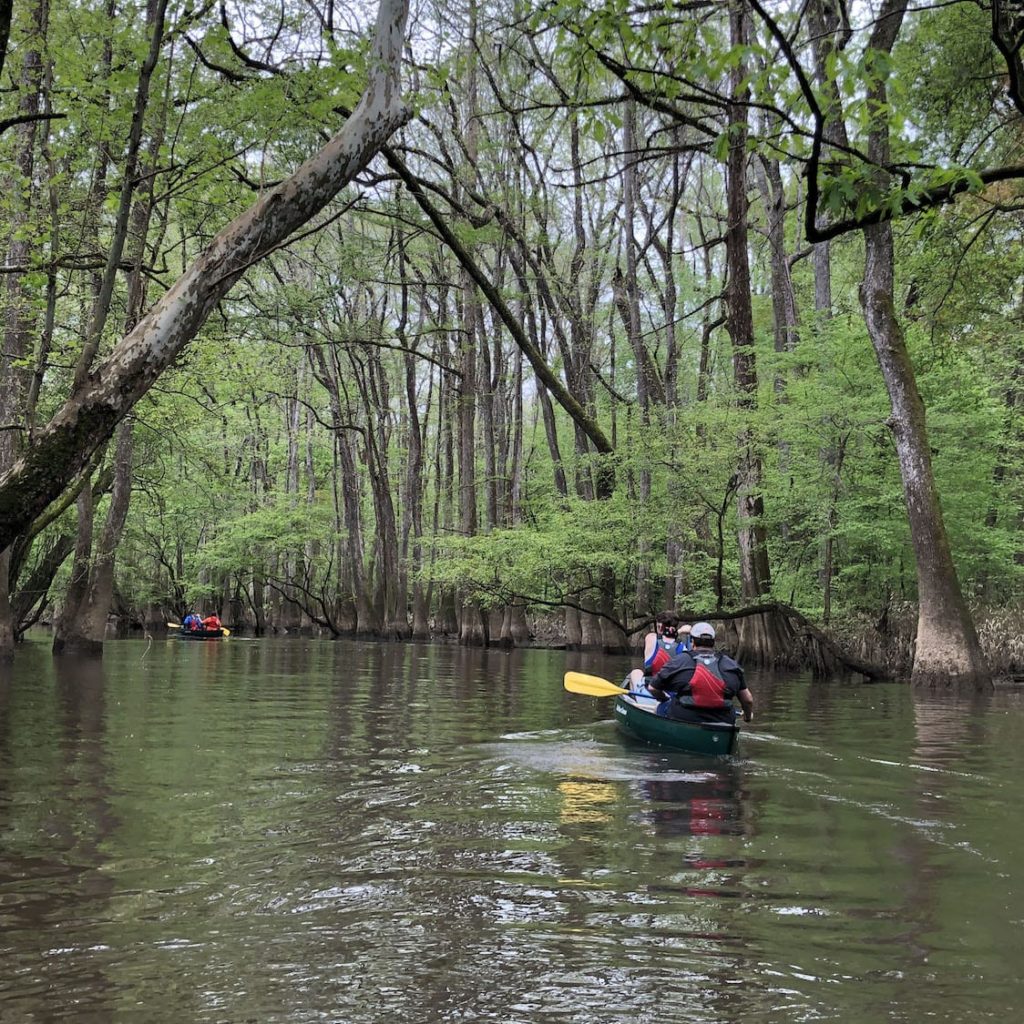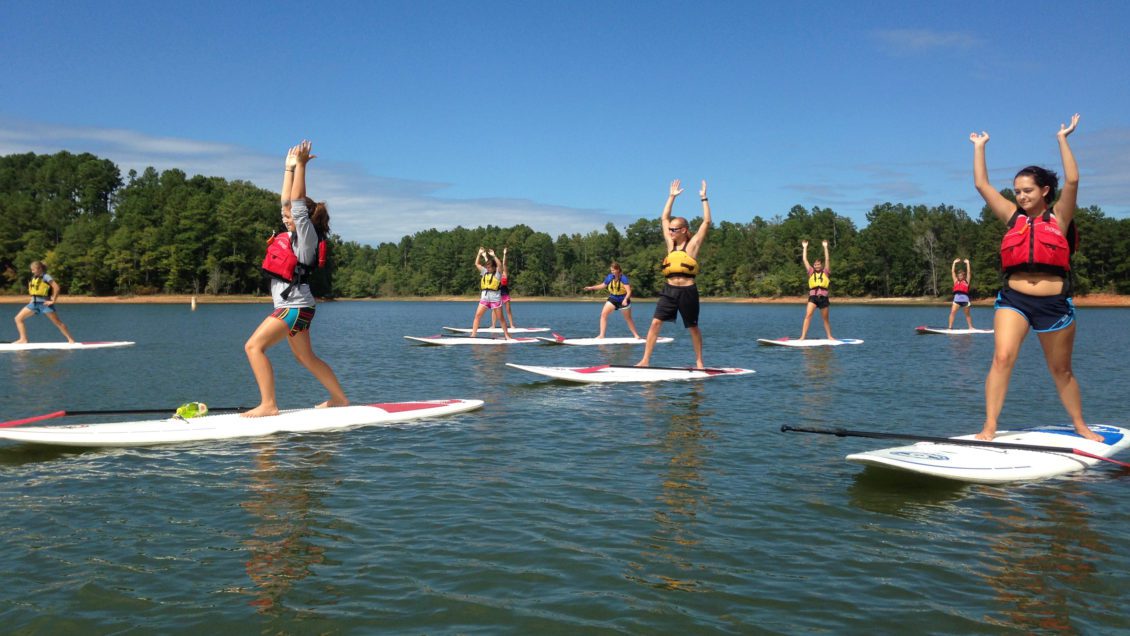When Sarah Fields, a Clemson University physics major, started planning her spring semester, she knew she needed to focus on more than her academic classes. Limits on campus activities because of the COVID-19 pandemic had taken away many of her usual ways of coping with stress, such as being a member of the university’s Tiger Strut Company, a student-led competitive dance team.
After talking to a friend, Fields decided to take a relaxation and meditation class through Clemson University’s leisure skills program, which allows Clemson students to take a leisure or recreational course for one credit, while also helping them explore non-academic hobbies or career options.
“I didn’t need the credit, but I was hoping to find something I could do that could counteract the stress of the semester and give me some of the same effects that I get from dancing,” Fields said. “Now I have time every Monday morning that is just for me, which has really benefited my attitude and my mood, and it’s helped me cope so far.”

She found that taking a relaxation and meditation class for credit ensured she had to take the time to be present every week, rather than taking an optional recreation class that she could decide to miss if her schedule got too busy. She also appreciated learning more about certain relaxation techniques and why they are used.
Fields is one of many students taking leisure skills classes this spring to relieve stress and socialize with other students since the start of the pandemic. The program typically offers more than 150 one-credit learning options every semester in subjects such as dance, yoga, fitness, outdoor recreation, and first aid as well as shotgun and other sports. Courses are developed and managed by the Department of Parks, Recreation and Tourism Management, which works with partners throughout campus to find space for its growing number of students.
Emily Turke, associate director for the leisure skills program on campus, said the classes give students an important opportunity to unwind from the stress of living through a pandemic. She said they have the added benefit of allowing students to learn something new while socializing with students, which she views as critical for students’ mental health.
“Many of our students have been quarantining and staying safe, and they’ve expressed to me that they’d almost forgotten how to socialize,” Turke said. “All of our class options put them safely back in social situations where they are talking to other students again and interacting in a way that they feel comfortable with because they know we’re doing it in a way that meets COVID safety guidelines.”
I don’t have to guess that students have used [the Experimental Forest] to cope with stress in their lives because they tell me directly, and I find that different students excel in the outdoor world more than they do in the classroom, so having both environments for learning provides balance for student growth.
Elizabeth Baldwin, associate Professor
June Pilcher, Alumni Distinguished Professor in the Department of Psychology, said leisure activities have inherent value and are good for people of all ages because they help to remove them from stressful activities. Pilcher said she is living proof of their value; as a graduate student, she started training in a traditional martial art to give herself a break from the stressors of graduate study.
“I’ve continued to train because I enjoy it, it keeps me active, I meet wonderful people through a common interest, and it helps me better adapt to unexpected setbacks,” Pilcher said. “Many of these activities provide a temporary escape from stress, but an even greater benefit is arguably in the longer term cognitive and physical benefit which can result from engaging in skills that we enjoy.”
Sarah Griffin, professor in the Department of Public Health Sciences, researches interventions for childhood obesity prevention and treatment, and she has learned through collaborations with other disciplines how impactful leisure can be beyond physical fitness. She said the impact of leisure on health has become so pronounced that it is now a key component throughout her research.
Griffin found through a study of a preschool-based program to increase healthy food consumption that all positive outcomes were linked to enjoyment and play. If the children enjoyed interacting with fresh food in the gardens and markets, then they were more likely to try them and ask for them.
“In the research I’m conducting for the CDC, we are assessing links between stress, health, physical activity and the neighborhood environment,” Griffin said. “This assessment would be incomplete without factoring in the effects of leisure activities and time spent in parks and green spaces.”

There are areas in Clemson’s own backyard that are designed for these activities. Elizabeth Baldwin, associate professor in the Department of Parks, Recreation and Tourism Management, has used the Clemson Experimental Forest for teaching as well as undergraduate and graduate research since 2007, and she is currently involved in a research study designed to better understand its value to the numerous audiences who use it.
The forest is accessible for research and teaching, and Baldwin has found that once she introduces students to it, they often return to the forest on their own. She has heard from students that they have folded trips to the forest into their daily routine in order to bike, run or hike. She has seen many students “fall in love” with the forest, with many noting it as a place for spiritual renewal that encourages creativity.
“Data is clear that stress and isolation is growing in college students, and we have a major antidote to that stress right here with the Clemson Experimental Forest,” Baldwin said. “I don’t have to guess that students have used it to cope with stress in their lives because they tell me directly, and I find that different students excel in the outdoor world more than they do in the classroom, so having both environments for learning provides balance for student growth.”

Karen Kemper, associate professor in the Department of Public Health Sciences, said she has become more aware of the impact of leisure activities on public health thanks to fellow faculty members from the Department of Parks, Recreation and Tourism Management. She said learning of the potent power that an outdoor space has on a person who is not even engaged in an activity was a true “ah ha” moment for her.
She has since considered leisure in a larger context and how it contributes to wellbeing through the social, mental, emotional, physical and spiritual dimensions of health. One of her classes introduces students to how the body responds to various behaviors, and one of the topics considered is the toll of chronic stress on health.
“We examine the positive role of physical activity and movement but also the contribution of just being in nature and of building resilience through friendships, social supports and learning new things,” Kemper said. “I believe leisure skills provide a means to build those buffers against stress, and they can include movement or play or being part of a group or just being in nature or any combination of factors that suit whatever stage of life you are in.”
Kemper said the COVID-19 pandemic has forced just about everyone to recreate routines and develop new coping strategies and priorities. According to Turke, the leisure skills classes at Clemson have become an option for students looking to factor something new and helpful into their routines that helps them remain more connected to others and to campus.
Those in-person opportunities are vitally important for some students, but others, such as Fields, have taken advantage of leisure skills—in her case, the relaxation and meditation class—that are offered online. Fields said the class allows her to cope with stress, interact with others and stay physically distant all at the same time.
“It gives me a nice quiet space to practice and not really worry about the people around me, so I can just focus on myself for an hour and a half a week, which is really nice,” Fields said. “Being able to take this time to focus on myself every week has been a huge help, and I’m really happy I decided to go through with it.”
The Department of Parks, Recreation and Tourism Management, Department of Psychology and Department of Public Health Sciences are part of the University’s College of Behavioral, Social and Health Sciences (CBSHS). Established in July 2016, CBSHS is a 21st-century, land-grant college that combines work in seven disciplines – communication; nursing; parks, recreation and tourism management; political science; psychology; public health sciences; sociology, anthropology and criminal justice – to further its mission of “building people and communities” in South Carolina and beyond.
Get in touch and we will connect you with the author or another expert.
Or email us at news@clemson.edu

